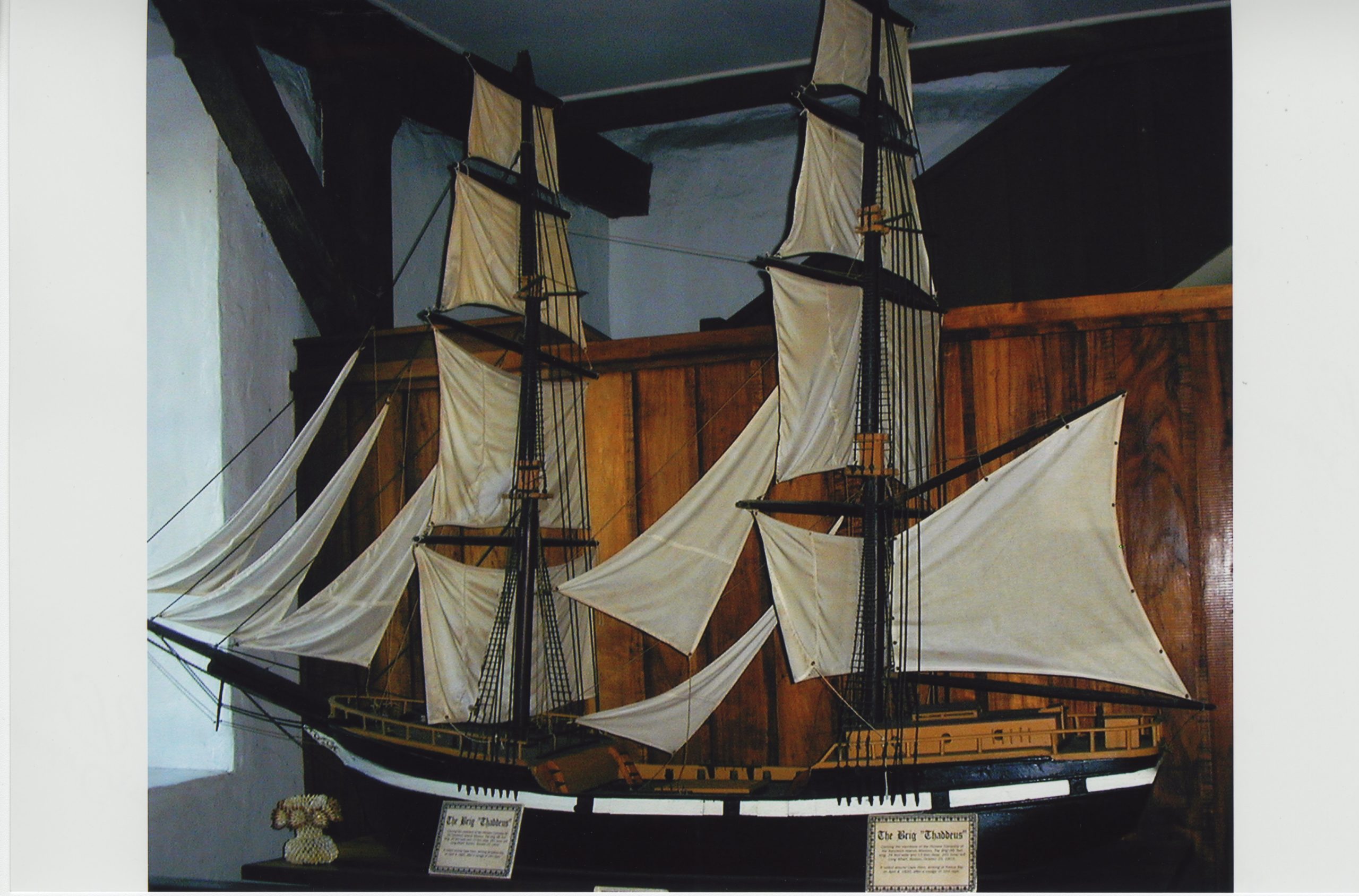
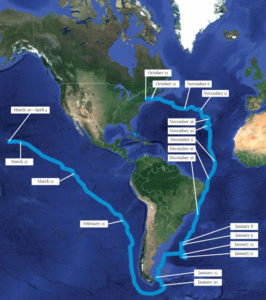
On October 23, 1819, the Pioneer Company of fourteen Protestant missionaries, five of their children and four Hawaiian men sailed with Captain Blanchard and his crew from Boston on the Thaddeus.
Many missionaries kept personal accounts of the journey. While often devoted to sermons and affirmations of their Christian faith, observations of daily life and personal reflections emerge. The official Journal of the Sandwich Islands Mission, referenced as the Thaddeus journal, records observations by Hiram Bingham, Asa Thurston and Elisha Loomis, believed to have written the document in turns.
These journal entries provide a firsthand record of the journey from Boston Harbor to the March 30, 1820, sighting of Mauna Kea near Kawaihae on Hawai‘i Island, and recorded arrival in Kailua Bay on April 4.
Scroll through the journal entries to learn more.
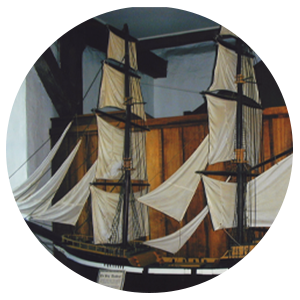
October 23, 1819
Departure
“This day in the good providence of God, we have been allowed to leave our dear native shores on an embassy of mercy, having been set apart to the work of propagating the gospel in the Sandwich Isles. Having been commended to God and to the word of his grace by the Rev. Dr. Worcester, and attended on board by many dear friends to whom with tears we gave the parting hand, we left Boston harbor with a prosperous gale, and with peculiar smiles of heaven. The little mission family containing 22 souls attended by G. P. Tamoree is this evening blessed with universal health.”
— Thaddeus journal
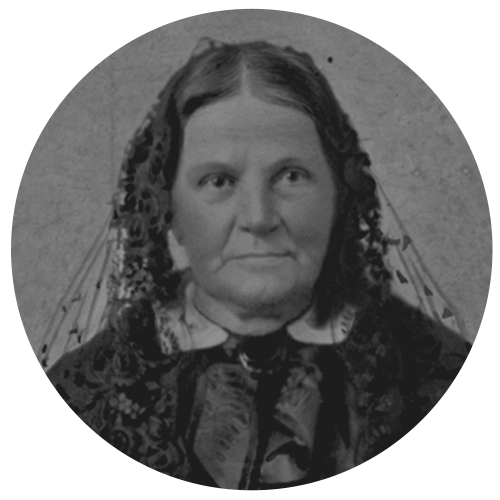
October 25, 1819
On Board
“Soon after we put forth to sea, ere we lost sight of the American shores, sickness obliged me to repair to my couch. … Chests, trunks, bundles, bags &c., were piled into our little room six feet square, until no place was left on the floor for the sole of one’s foot … This was with me a gloomy season, in which I felt myself a pilgrim and a stranger … The third day, the whole family met on deck. Could you have beheld the scene exhibited, while you pitied, you must have smiled. Besides a boat, hogsheads, barrels, tubs, cables, &c, with which the deck abounded, there were to be seen a dog, cats, hens, ducks, pigs, and men, women, and children. Our whole family, with the exception of the natives, all under the horrors of sea-sickness. Some thrown on their mattresses, others seated in clusters, hanging one upon another, while here and there individuals leaned on the railing, or supported themselves by hanging upon a rope.”
— Lucy Thurston, in a letter to her family dated December 20, 1819
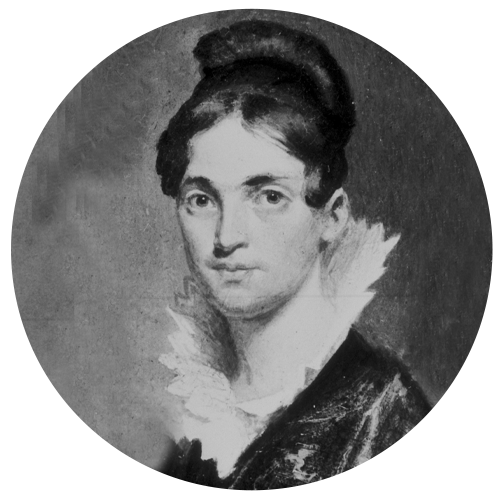
November 6, 1819
Seasickness
“A fine breeze blew up, which took us off at the rate of 8 miles an hour. Our seasickness came on, and before morning every passenger, except the 4 native youths, were broadside. I need not attempt to describe the horrors of seasickness, for I believe it is well understood by most of you. However, to make the best of us, we were a pitiable company. I think here was an exception to the saying that misery loves company, for I believe the miseries of one was no consolation to those of another.”
— Lucia Ruggles Holman, writing about the departure.

November 17, 1819
Guiding Hand
“We have been tossing rolling on an uncommonly rough sea, according to the account of the best seamen on board, 24 days, and yet have proceeded but 5 and a half degrees toward the equator. We cannot but conclude that He who controls the winds and the waves, and conducts all the affairs of nations is either kindly withholding us from dangers and disasters at Cape Horn or operating changes in the Sandwich Isles favorable to the introduction and success of our enterprise. He is kindly inuring us to a life of toil and hardship. He spreads our table on the face of the boisterous deep, gives us now the comfort of returning health, teaches us to sit with meekness at his feet and to trust in his all sufficient grace.”
— Thaddeus Journal

November 26, 1819
Comfort
“Appointed Br. W. as a committee to take charge of the clothing cabin stores, and of our Native youths. They have been a great comfort and inspiration to the rest of the family, particularly Hopu and Honoree during seasickness and rough weather.”
— Thaddeus Journal
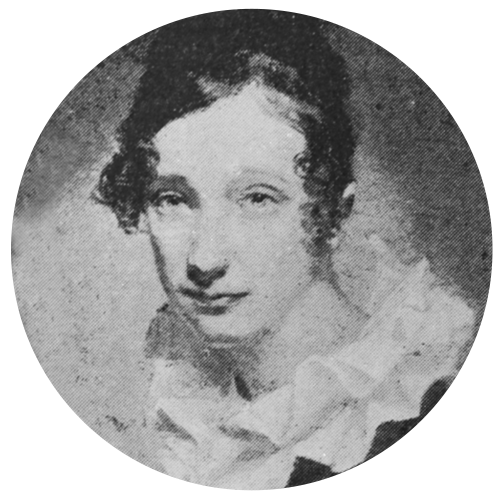
November 30, 1819
Hawaiian Language
“This day commenced the study of the Owhyhee [Hawai‘i] language…This evening held our first singing school. It is greatly to be wished that we could all join with our hearts and voices too, in singing praises to Zion’s King, at our morning and evening devotions, and public worship. ”
— Sybil Bingham’s journal
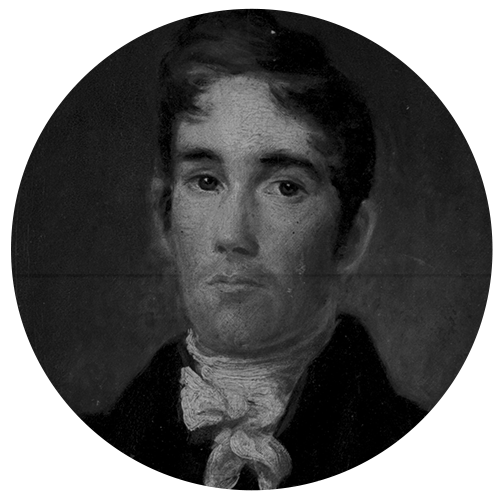
December 9, 1819
Lightning and Gunpowder
“Kind providence has this day interposed & saved us from an awful death. The lightnings of heaven have played about us for several hours, accompanied by the most tremendous peals of thunder. One flash struck the main top-mast, but did no essential evil. Had it found its way to the magazine, which contains upwards to 5000 lbs. of powder, more than 40 souls must instantly have gone to the world of spirits. ”
— Samuel Whitney’s journal

December 16, 1819
Wonders of the Sea
“The boat, which took off our letters, returned and brought with it a Portuguese Man-of-war, as the sailors call it. An animal substance (if substance it may be said to possess, for it appears more like blubber than anything else) resembling a turn-over pie, with ten thousand fibrous legs and as many joints, each a foot long. The touch of this animal produces a sensation somewhat like an electric shock — the Dr. only, tried the experiment. We often see them floating upon the surface of the water, and they are objects of great curiosity to us who have never beheld many wonders of the sea.”
— Lucia Holman’s journal
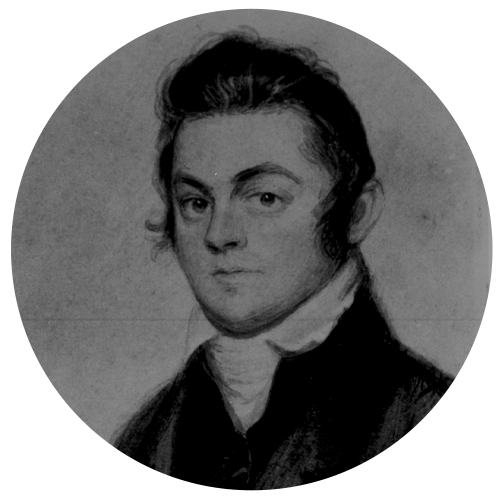
December 26, 1819
Fresh Water
“After a distressing seasick night, I awoke early this morning, hearing some one cry out “A heavy shower is rising in 'the west”. I arose immediately took my tin cup and went on deck and. was so fortunate as to catch three pints of pure rain water as it ran off my umbrella. -This was indeed a prize, being so much better than our imported water; it will serve N. and myself two days.”
— Samuel Ruggles’s journal

January 8, 1820
Heavy Seas
“The seas run in mountains one moment we were tossed as it were upon the top of a lofty mountain; the next, plunged into a deep valley with a mountain on each side of us. It seems indeed as if the old Atlantic was torn up from its lowest bottom ... At one time Capt. B. was knocked down by a heavy sea and thrown from one side of the Thaddeus to the other, severely bruised and narrowly escaped, being swept overboard.”
— Samuel Ruggles’s journal

January 9, 1820
Whales
“We have been gratified today by the exhibition of some of the works of God in the mighty deep, particularly the appearance of several whales, the first we have seen, a shark, and a multitude of porpuses… After a tossing boistrous week the Lord of the Sabbath speaks peace to the winds and waves and peace to our souls. ”
— Thaddeus journal

January 12, 1820
Health and Contentment
“My health is better to-day than it has been in a month past. I am consequently very happy – I have learned 6 sentences in Owhyhee [Hawaiian], read 2 pages in the ‘Materia-Medica,’ written 3 pages in my journal, ... Dined on baked pork and beans – nothing wanting but a good appetite and a thankful heart.”
— Lucia Holman’s journal
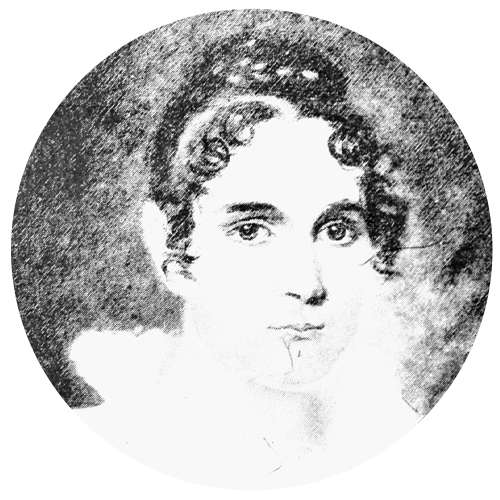
January 17, 1820
Daily Schedule
“half past 7 to 9, breakfast and exercise.
9 to 12, writing and study.
12 to 1, recitation and conversation.
1 to 2, dinner and private devotion.
2 to 5, writing and reading.
5 to 6, study of the language.
6 to half past 7, tea, conversation, and exercise.
half past 7 to half part 9, private and family devotion.
Half past 9 to 5, meditation and sleep.”
— Mercy Whitney’s journal

January 25, 1820
Sighting Land
“After having been out ninety four days, witnessing nothing but floating bargues like our own, some monsters of the deep, the expansive ocean, and the wide spread heavens, I can not describe to you the joyful emotions, which the sight of land has this day produced. We have a fair view of Tierra del Fuego on the right, and Staten Land on the left.”
— Lucy Thurston’s journal

January 30, 1820
Rounded Cape Horn
“This region of terror we find to be the place of our rejoicing. No Sabbath, perhaps, since our embarkation has been more interesting or happy than this, or deserves a more grateful rememberance. This day we double Cape Horn and write upon it ‘Ebenezar’ … We desire that the name of our divine Helper may be glorified by future navigators when they double this cape … by the rising and future generations both in heathen and christian lands, when they look on the map of the world and remember that the first Christian Mission to the Sandwich Isles passed the dangerous region of Cape Horn, singing the praises of the God of Zion, for his smiles upon the enterprise and for his gracious assistance thus far.”
— Thaddeus journal

February 21, 1820
Danger in the Islands?
“I inquired of the Capt. a few days since, if he thought there would be any danger of our lives being taken at the Islands. He said, aside from intoxication, to which they were addicted, and which sometimes led them on to more bold assaults, he thought not in any other way than by the use of poison … The more I approach those savage shores, the more I reflect on the subject, the great work magnifies, and I exclaim, Who is sufficient for these things?”
— Lucy Thurston’s journal

March 11, 1820
Swimming with a Shark
“6 of our Missionary Gents went into the sea to bathe. They remained 15 or 20 minutes in the water, swimming about the vessel, heedless of danger - but they had not been out of the water long before George Tamorree discovered a large Shark close under the bow of the ship … On being caught (for the ship's company were so fortunate as to catch the Monster) it was found to be the blue Shark, a real Man-eater, 10ft. long, and a mouth sufficiently large to take in a man's leg or head. Within him, was found a beef bone which the cook had flung overboard just before the men went in, and a porcupine fish which was an object of great curiosity. ”
— Lucia Holman’s journal

March 27, 1820
Man Overboard
“I had not been at work long before the rope slipped & I fell back into the water. The ship at this time was going at the rate of six miles an hour. With emotions not to be described I saw the ship, my friends, the wife of my bosom leaving me behind… The thought of soon standing before my judge was for a moment dreadful … And there in the midst of the waves I renewed my covenant to spend my life if spared in building up his kingdom in the Isles of the sea. Relief was at hand and in the space of 20 or 30 minutes I was again on board.”
— Samuel Whitney’s journal

March 30, 1820
Mauna Kea and the News
“Early this morning the long looked for Owahyee [Hawai‘i] and the cloud capt and snow capt Mauna Keah appear full in view to the joy of the animated multitude on board (11 o'clock A.M.) We are now coasting along the north-east part of the Island, so near the shore as to see the numerous habitations, cultivated fields, smoke rising in different parts, fresh vegetation, rocks, rivulets, cascades, trees &c. and with the help of glasses men and women … Capt. B. this afternoon sent off a boat to make inquiries respecting the king &c. Mr. Hunnewell, a mate, Thos. Hopoo [Hopu], Tamoree and others, went nearly to the shore and fell in with 10 or 12 native fishermen in their canoes, who readily gave the important information that the aged King Tameamaah [Kamehameha] is dead – that Reehoreeho [Liholiho] his son succeeds him – that the images of his Gods are burned – that the men eat with the women in all the Islands.”
— Thaddeus journal

March 31, 1820
Meeting Ali‘i
“Thomas [Hopu] and I had been on shore at Toahie [Kawaihae]; Larokrimakoo [Kalanimoku] the head chief, and two of Tamahamaha's [Kamehameha] widows; all seemed pleased to see us, and treated us with kindness. The news which we heard yesterday was confirmed by them. God has done a great work for us apparently without any human agency; a work to accomplish for which we expected to labour for years…This revolution took place about the time we left our native shore, the time when so many prayers were offered up for us, and for this nation. They have now no worship but seem to be waiting for the law of Christ. ”
— Samuel Ruggles’s journal

April 3, 1820
Sewing for Ali‘i
“Kalakua brought a web of white cambric to have a dress made for herself in the fashion of those of our ladies, and was very particular in her wish to have it finished while sailing along the western side of the island before reaching the king. The first Sewing Circle was formed that the sun ever looked down upon in this Hawaiian realm. Kalakua [Kamehameha's widow], queen dowager, was Directress. She requested all the seven white ladies to take seats with them on mats, on the deck of the Brig Thaddeus. Mrs. Holman and Mrs. Ruggles were Executive Officers, to ply the scissors and prepare the work…The four native women of distinction were furnished with calico patchwork to sew, a new employment to them.”
— Lucy Thurston’s journal

April 4, 1820
Anchoring to Meet Liholiho
“ At 10 o'clock this morning, 163 days from Boston, we came to anchor in Kirooah Bay [Kailua-Kona], about 1 mile from the palace…visited John Adams, a native chief who has acquired something of the English language and manners, also John Young who has long resided here and is now acting secretary to the King. Then waited on the King …[Through] Mr. Young and Thos. H. made known to his majesty the views of the American Board and the wishes of the Mission family. He seemed pleased with the object laid before him, but far from being in haste to give an answer. ”
— Thaddeus journal
